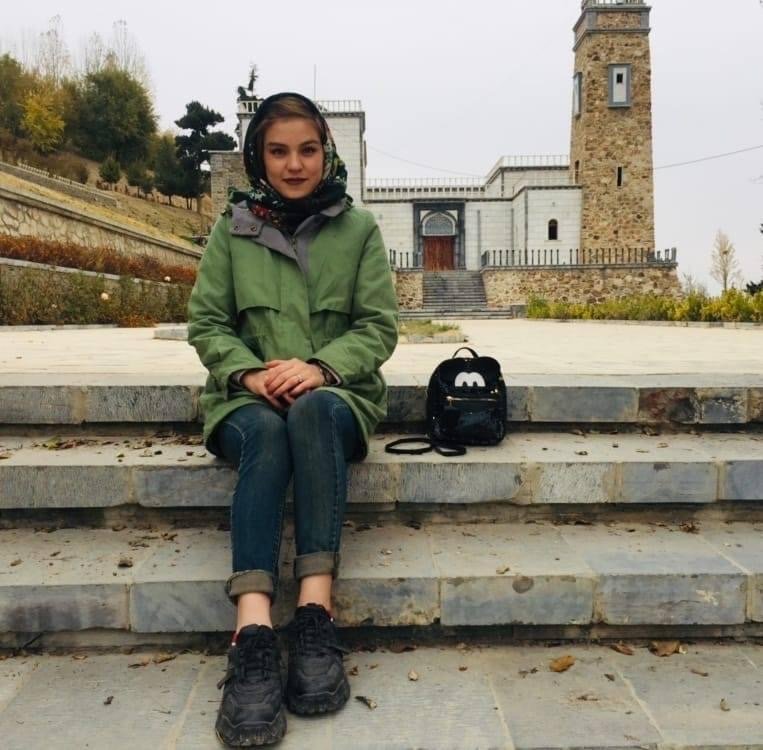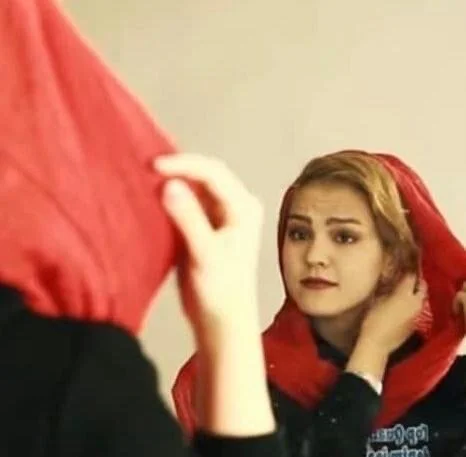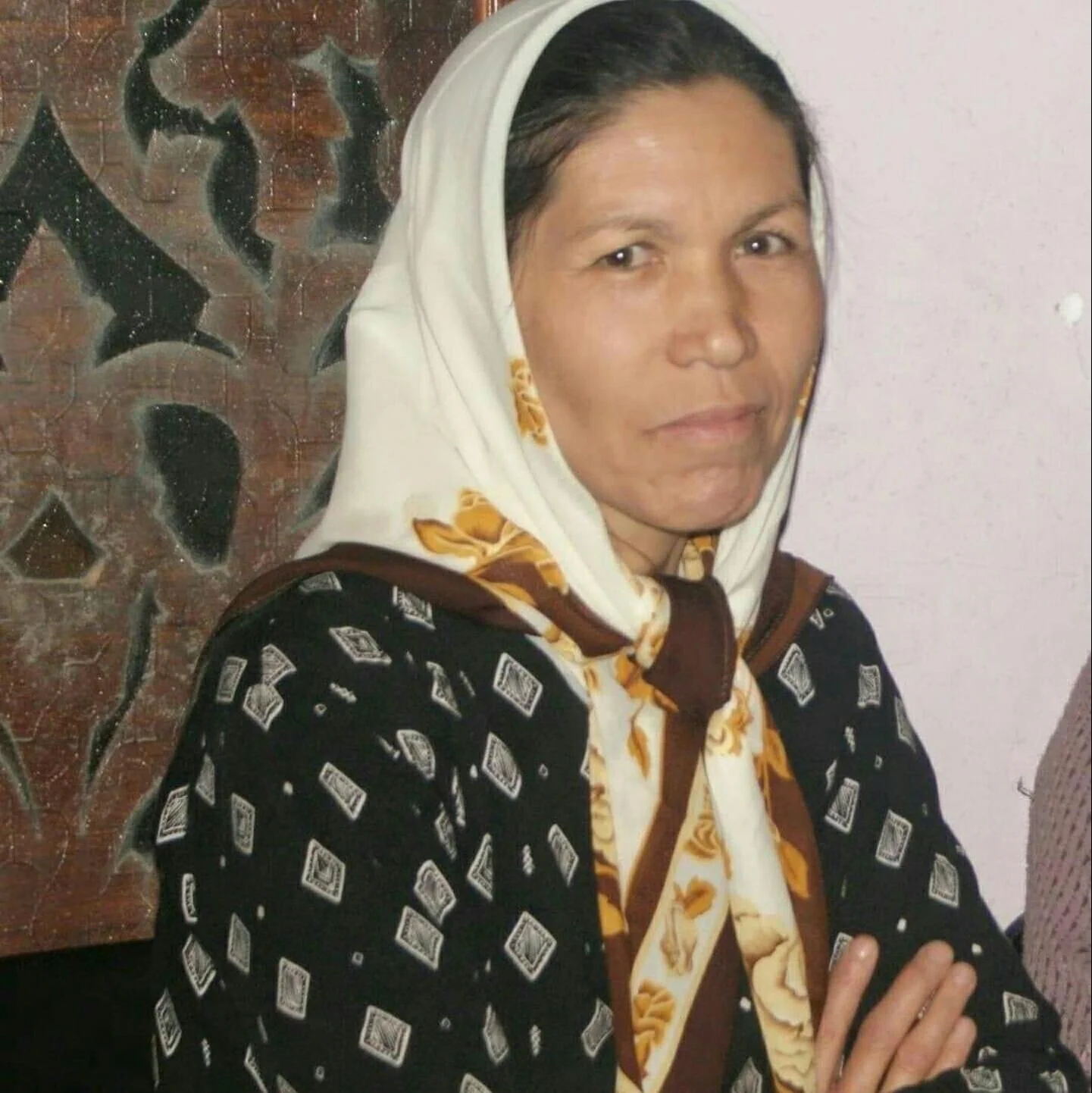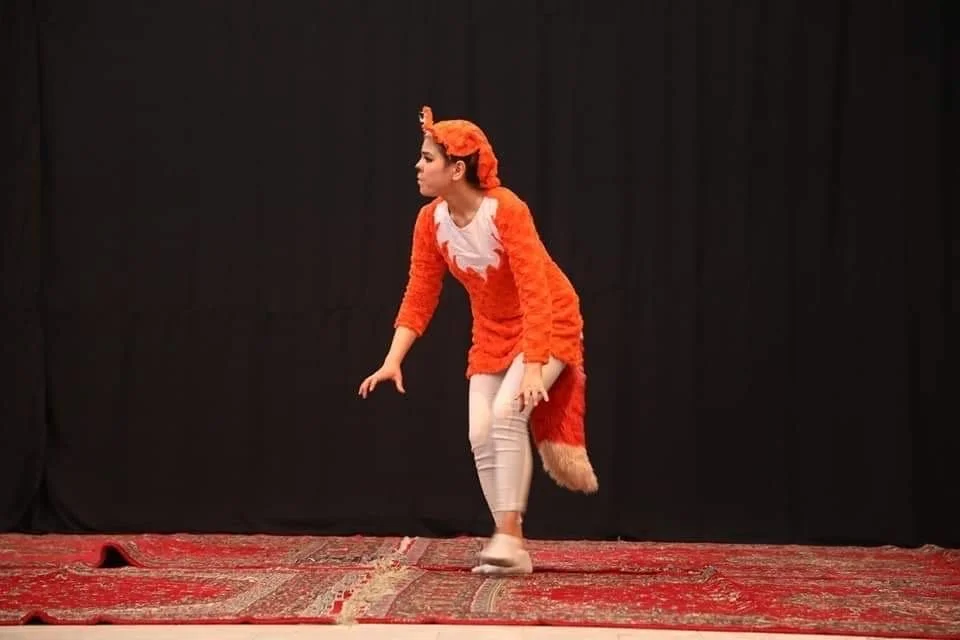Fatima
فاطمه
(FRANCE)
“Always have hope. No matter what happens — no matter how many obstacles you must face — have faith and hope. Difficulties will always arise, but you have to rise to the occasion.”
Fatima spent most of her life in AFCECO, which was a home for girls and boys displaced by extreme poverty and violence between 2010-2017. She enrolled in the Fine Arts Faculty of Kabul University and later became part of a theater performing team. Fatima directed and performed in numerous plays and movies. She also became a member of Isteqlal National Soccer team in 2013 and traveled to neighboring countries for regional soccer matches.
On August 15, 2021, she was evacuated to France but continued to devote her work to theater as a refugee. She is continuing her education in Conservatoire National Supérieur D'Art Dramatique and following her dream to become a fine artist.
Q1: What is a single memory or story you remember from Afghanistan?
Five years ago, I was living in an orphanage for which my mother was a cook. On July 11, at seven in the morning, I heard an explosion. This first thing I thought about was my mother’s safety. I borrowed a phone from an orphanage guard and called her number. After three missed calls, a policeman picked up the phone and asked, “What is your relationship with the Shahid [martyr]?” I could not believe the words I was hearing, so I asked him, “Is it a woman? How is she?” I did not believe him. That day we traveled from hospital to hospital until one in the afternoon, when we finally found my mother.
We continue to endure the pain of her loss. It has been a permanent torture for me. Since that day, I have been without a person to rest my head on and tell my sorrows. My father has told me he’s now my father and my mother, but there are things only a mother can understand. A mother’s love is one of a kind.
Years after my mother’s death, after much struggle, my father, my sister, and I were finally beginning to put the pieces of our lives back together — then the murderers returned and robbed me of my happiness all over again. I could not even visit my mother’s grave and say my last goodbye before I left. And the moment that I said goodbye to my father and sister remains imprinted on my eyes. My father had to sacrifice seeing his daughter grow up because he was scared to lose her for good.
I am here but my mind doesn’t feel safe. I feel as if I’m being tortured all the time.
Q2: Tell us the exact moment you decided to leave Afghanistan.
I cried for nights because I didn’t know what to decide. My sister does not have good mental health. She does not speak. She has been traumatized. She needed me. So I still think I made a terrible decision. I need someone to tell me I made a good decision. I am so scared of regretting this decision in the future.
The Taliban in the airport were very violent. I was splashed with water because I was a girl. I had no man to accompany me. Late at night, when I wanted to return home, no taxis would accept me because I didn’t have a mahram [a husband or male family member]. I begged everyone, even my closest friends, to call a taxi for me but they refused to help. I saw the true colors of people after the Taliban took control. We had fought for so long for equality and now see what they have done to us. We can’t even call for a taxi.
I had never wished to be a man before, until that night. Not even my closest friends would wave a hand to take a taxi with me. No one bothered to give me a ride home without a marham. Maybe if I was a man, I too would not be able to appreciate the difficulties of traveling alone as a woman, but at least I would not have to go through all these troubles firsthand.
When I entered the airport, I had mixed feeling of joy and sorrow. When our plane crossed a mountaintop on which “Afghanistan” was written, in my heart, I wished for a miracle so I would not have to leave my country. I was holding back tears remembering the miserable days we had in Afghanistan when we did not have food and shelter.
I had always wanted to continue my studies in Western countries, but I then hoped to return to Afghanistan. I never imagined I would leave my country with only a handbag, in conditions like these. Everyone in the plane was crying. People were looking out the window crying and saying they had lost everything. We have lost all we ever had.
Q3: What is something important that you wanted to bring with you? Or what is something you wanted to bring but could not?
I really wished I could have brought my mother’s wallet. She had it with her when she died.
She always wanted to hear about my achievements and successes. She was the one giving me the encouragement to go on. Now all I have is one photo of her on my phone. What do I do now when things get unbearable? Talk to a photo? It won’t fix anything. The Taliban took everything from me. First, my mother. Now, my father and sister. Sometimes I wonder what is the hope for which I should keep living? What can I have? A family? A life? A mother? What?
Fatima’s mother.
Q4: If you could send a message that will be heard in thirty years, what would it be?
Always have hope. No matter what happens — no matter how many obstacles you must face — have faith and hope. Difficulties will always arise, but you have to rise to the occasion. If you are fighting an unfair fight, you must make sure that the next generation does not have to do so. It’s time to stop saying “It’s okay. It will pass.”
We have nothing left. We have lost all our happiness.
Fatima performing.
“You have to save your wife and your child. This is the most important thing.”





